Rule 1 | Let the line flutter
Lesson 9 | Hack the line
20 min.
If the fluttering line still isn’t doing the job, then this is the exercise for you.
Step 1 | Go and fetch an item like this!
Go and find an object that is long and has uneven edges. This could be a small branch from your garden, or a stone like this one. It is about 20 cm long. It is enough if you have something that is 15 cm long.
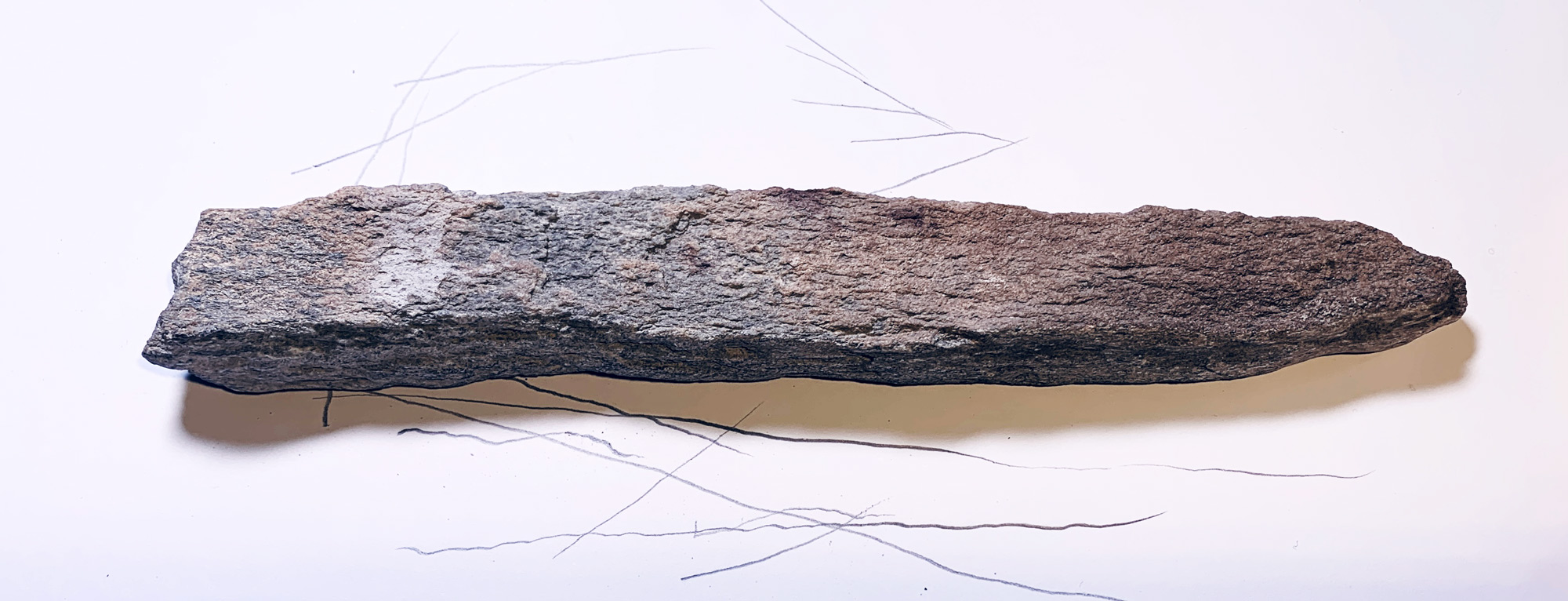
Sketch&Draw has already taught many students, there are almost one and a half thousand students who have learnt this method. And every now and then there was a student for whom „the flutter“ didn’t work. I was a little clueless that I couldn’t teach this „fluttering“ to 0.5 per cent of the students.
Recently, on a hiking trip, I had this idea with the stone. I’ve tried it out with very few students so far – and it works.

This is a seed head of a wisteria and a small branch of the plant. Both work well, the first is soft and flowing in shape, the second is somewhat snappy.
Step 2 | Look at this beetle - Onymacris unguicularis
The beetle Onymacris unguicularis, commonly known as the fog-basking beetle, has developed a remarkable method for collecting water in the dry Namib Desert. It uses its body to harvest moisture from the air. During the early morning hours, when fog rolls in, the beetle climbs to a small elevation and tilts its body upward. Its back is covered with tiny bumps and grooves that capture the water droplets from the fog. These droplets then roll down towards its mouth, allowing the beetle to drink. This ingenious technique helps the beetle survive in an extremely arid environment with little access to liquid water.
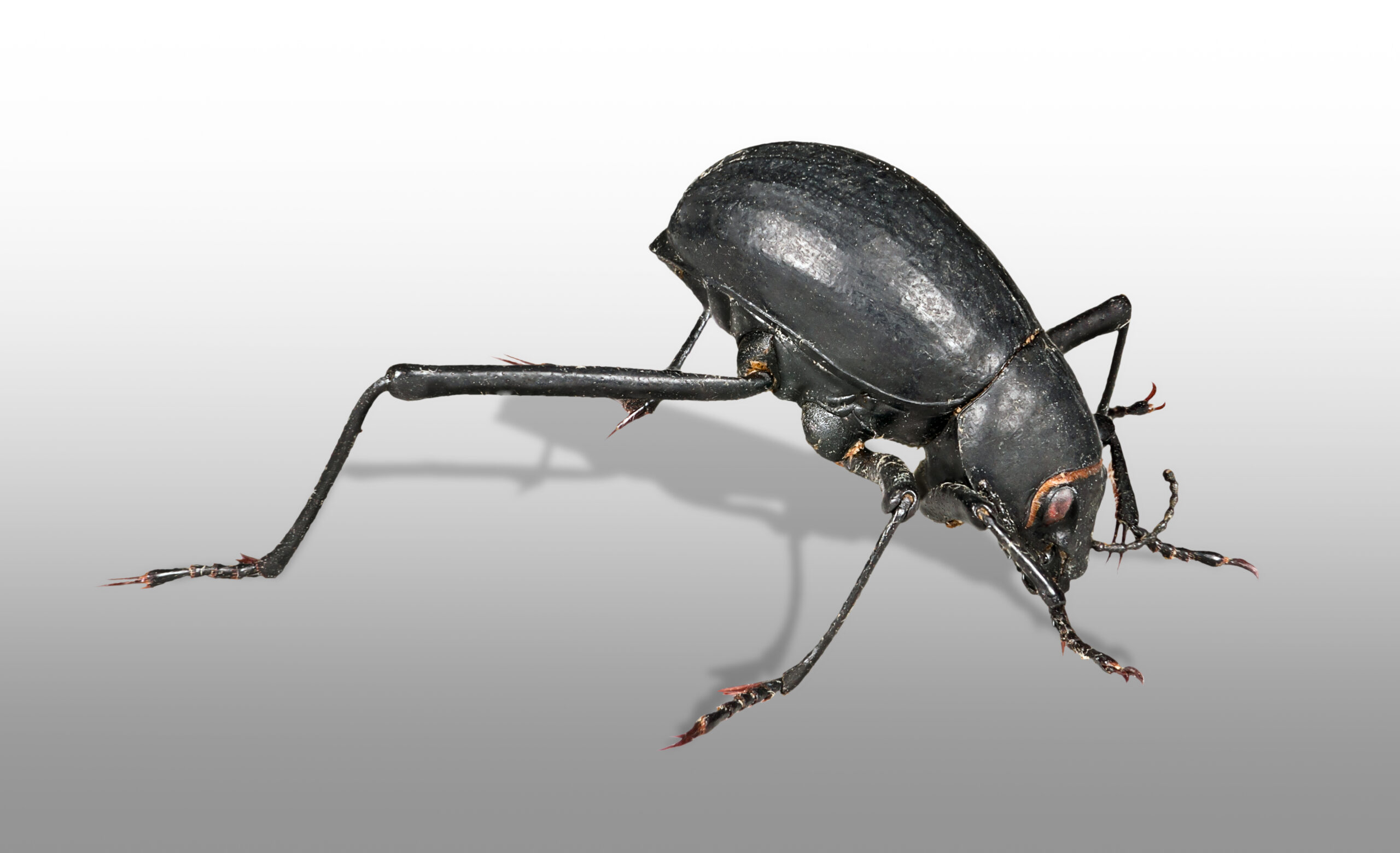
Didier Descouens – Own work, CC BY-SA 4.0,
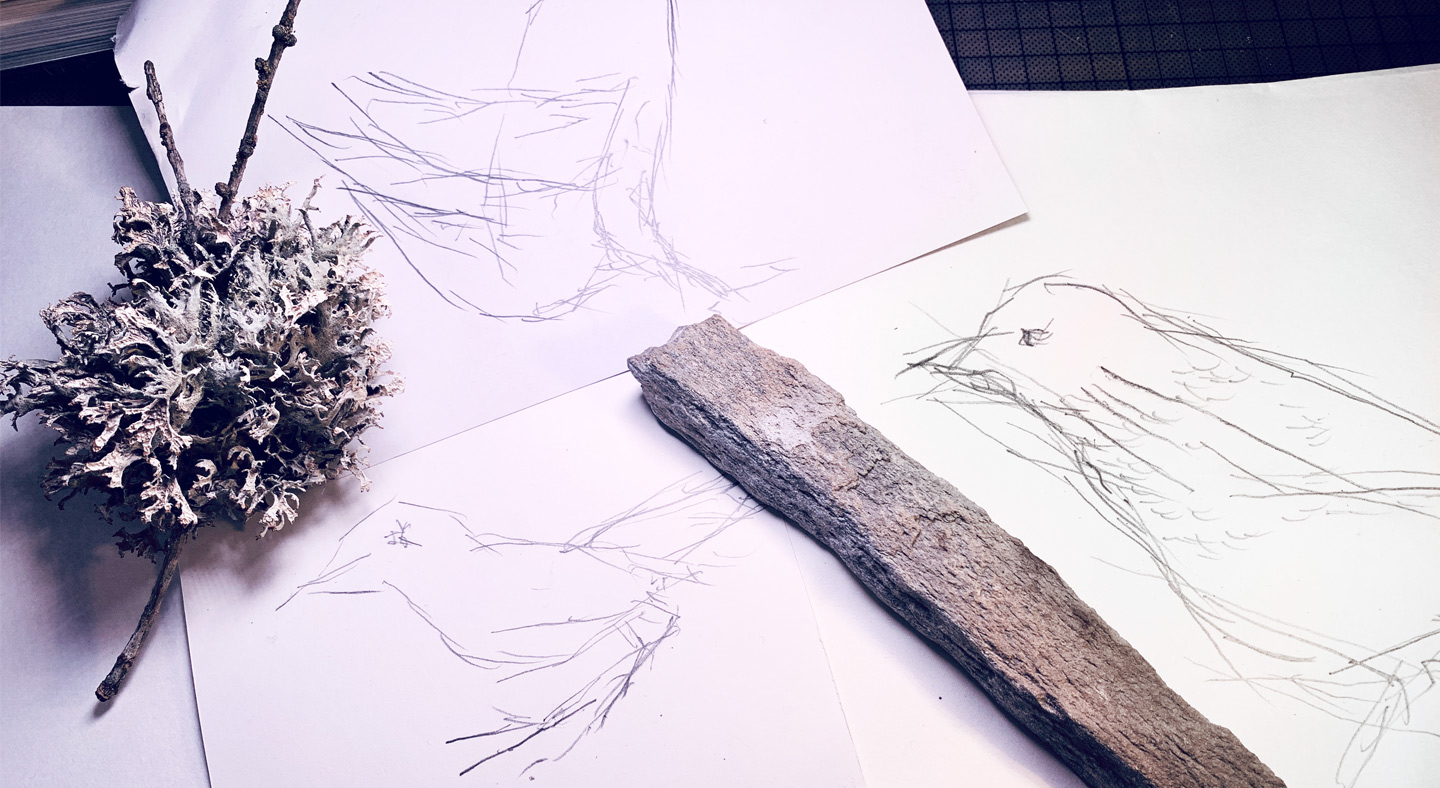
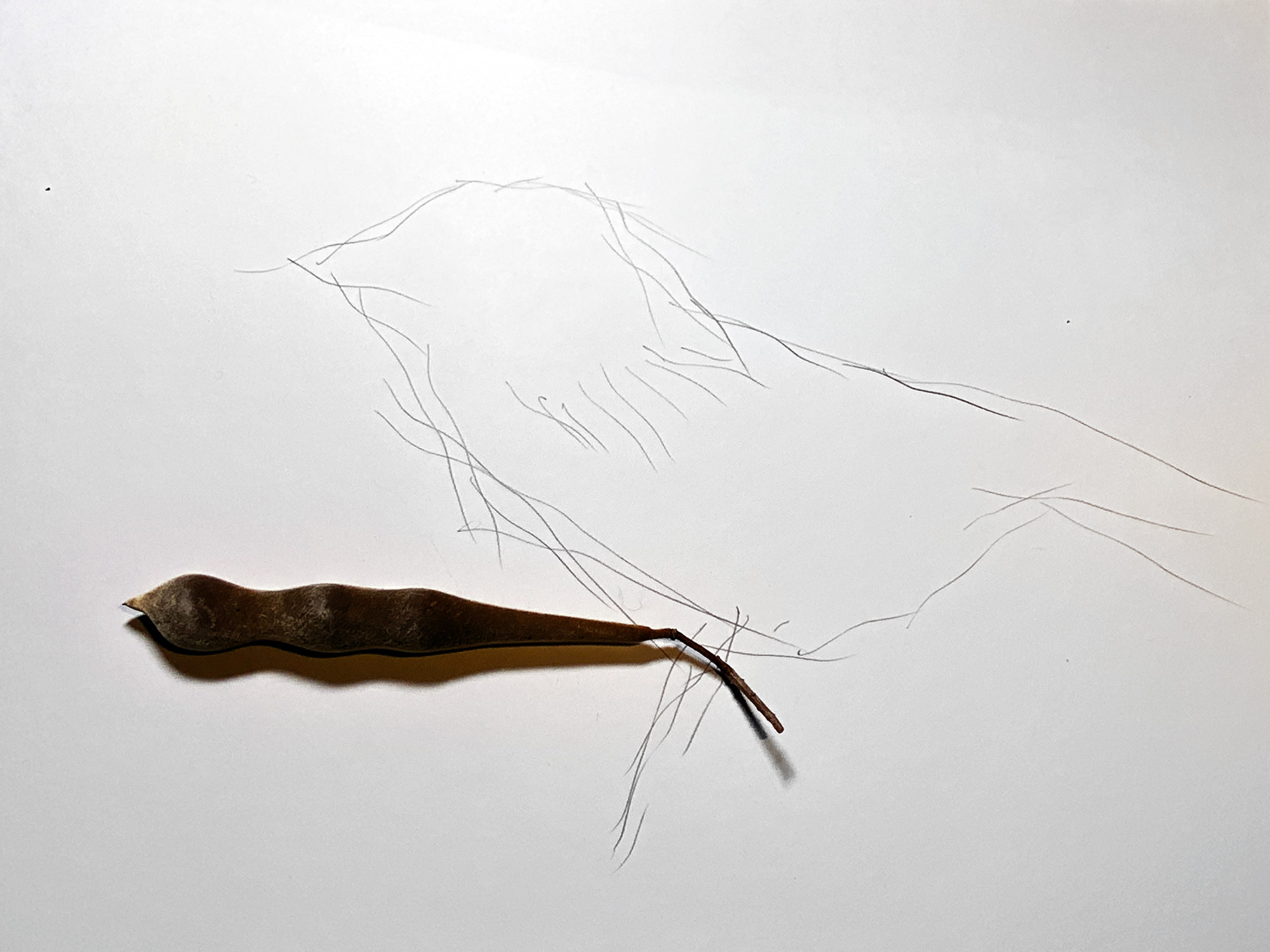
ASSIGNMENT | Play around with objects and lines. Have fun and experiment to make your line as free as possible,
To upload, use the buttons further down.
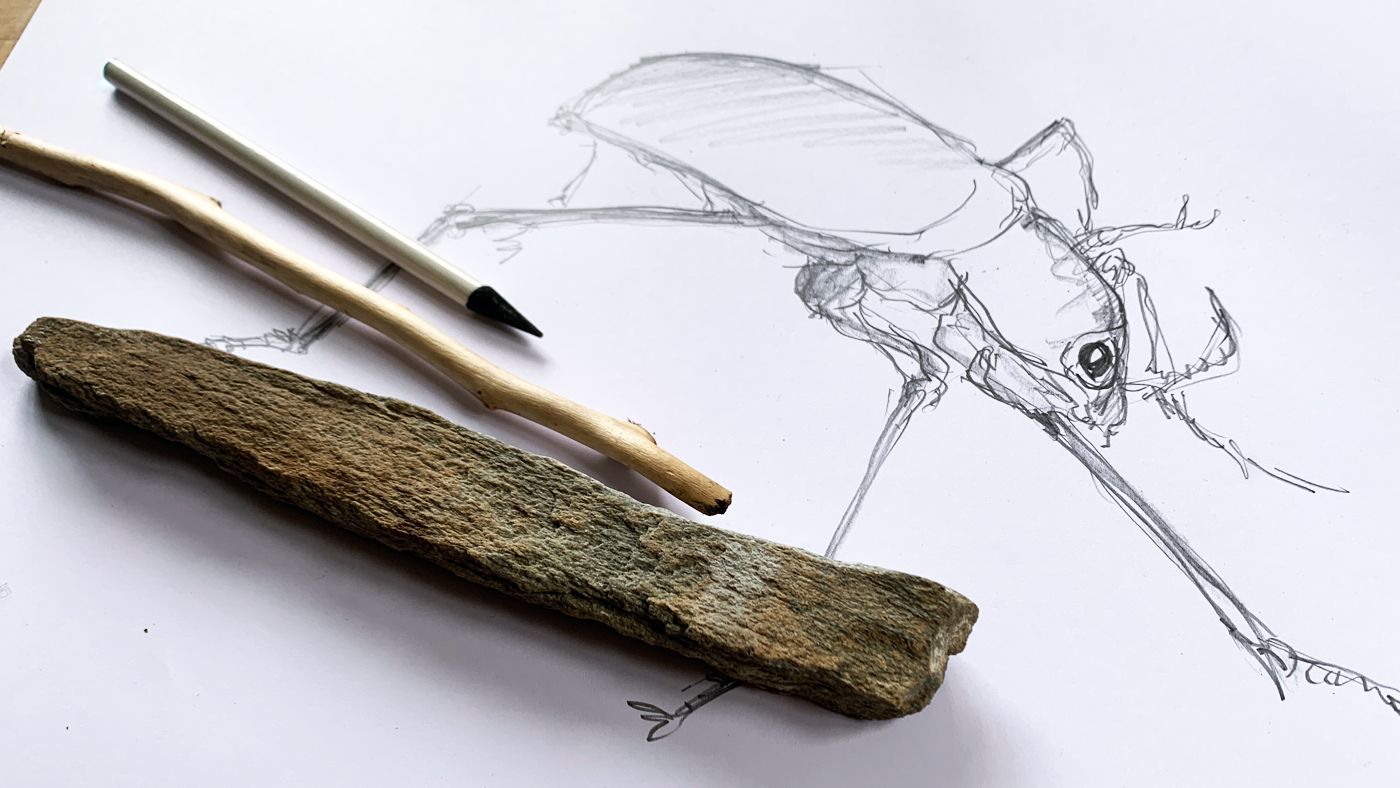
Free trial
Try one lesson and decide if you want to do the whole course. Click for the free trial ...
Certificate
If you want to achieve a certificate that proves your sketching skills, get all your information here ...


